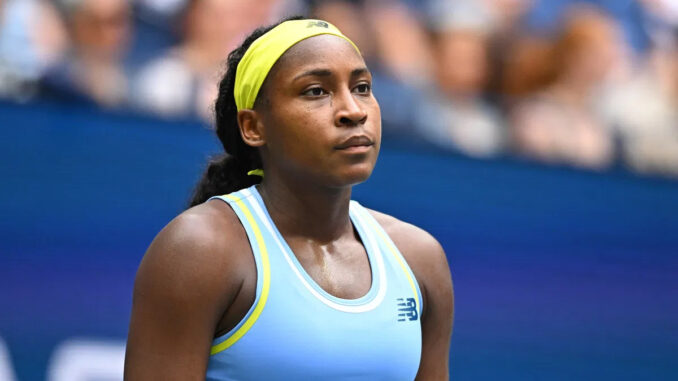
In the midst of her stellar performance at the 2025 French Open, where she powered into her fifth consecutive quarterfinal with a commanding 6-0, 7-5 victory over Ekaterina Alexandrova, Coco Gauff has ignited a firestorm off the court. The 21-year-old American tennis sensation has become a vocal advocate for change, joining forces with fellow player Ons Jabeur to call out the tournament’s scheduling practices. Their criticism centers on the glaring absence of women’s matches in the coveted prime-time slots at Roland Garros, a disparity that has drawn sharp attention and sparked demands for reform.
The issue came to a head as Gauff, the world No. 2, reflected on her own experience at the tournament. “Night match, people were excited to see [me] too,” she remarked, emphasizing the missed opportunity to showcase women’s tennis during the high-viewership evening sessions. Since the introduction of night matches at the French Open in 2021, only four women’s singles matches have been scheduled in these prime slots under tournament director Amélie Mauresmo’s tenure, with none featured in 2024 or thus far in 2025. Instead, all six night matches in 2025 have spotlighted men’s singles, relegating women’s matches to less-attended daytime slots, often the early openers that draw smaller crowds.
Gauff’s outspokenness has resonated widely, amplifying a conversation that Jabeur initiated earlier in the week. The Tunisian star’s call for equitable scheduling struck a chord, and Gauff’s voice has added significant weight to the cause. Their concerns have not gone unnoticed, with media scrutiny prompting Mauresmo to address the issue. However, the tournament director noted that no players had raised the scheduling concerns directly with her, a response that has done little to quell the growing discontent.
The debate has also drawn the attention of Rennae Stubbs, a former professional player and ex-coach of Serena Williams. Stubbs has emerged as a fierce advocate for change, urging Mauresmo to take immediate action. “It’s an easy fix,” Stubbs argued, proposing a straightforward solution: schedule two matches per night, starting earlier, to accommodate both men’s and women’s games. She pointed out the disparity in match duration—women’s matches, being best-of-three sets, are often shorter, leading some to argue they offer less value for prime-time audiences. Stubbs dismissed this notion, emphasizing that proper scheduling could balance the showcase and give fans what they want: high-stakes tennis from both tours.
Gauff’s advocacy comes at a time when her on-court performance is turning heads. Her dominant run at Roland Garros, where she has yet to drop a set, underscores her status as one of the sport’s brightest stars. At just 21, she’s already a veteran of the Parisian clay, reaching the quarterfinals for the fifth straight year—a feat that places her among the youngest to achieve such consistency at a single major since Venus Williams in 2001. Her victory over Alexandrova was a testament to her prowess, as she breezed through the first set in just 27 minutes before navigating a tougher second set to secure her spot in the final eight.
Beyond her athletic achievements, Gauff’s leadership off the court is cementing her as a transformative figure in tennis. Her willingness to speak out mirrors her maturity, a trait that has earned her the playful nickname “Mrs. Mature” from fellow American player Frances Tiafoe. The moniker stems from her poised demeanor, which belies her age, though Tiafoe couldn’t resist teasing her for a lighthearted moment earlier in the tournament when she forgot her rackets for a match. “I hear that type of comment a lot,” Gauff said with a smile, shrugging off the jab while staying focused on her mission both on and off the court.
The scheduling controversy has cast a spotlight on broader issues of equity in tennis, with Gauff and Jabeur’s critiques resonating beyond Roland Garros. As the 2025 French Open progresses, the pressure is mounting on tournament organizers to address these concerns. With Gauff set to face fellow American Madison Keys in the quarterfinals, her performance continues to captivate fans, but her push for fairness may prove to be her most lasting impact. As Stubbs put it, the solution is within reach—it’s now up to the French Open to listen and act.
Leave a Reply